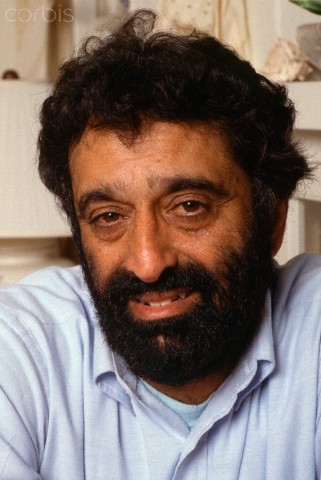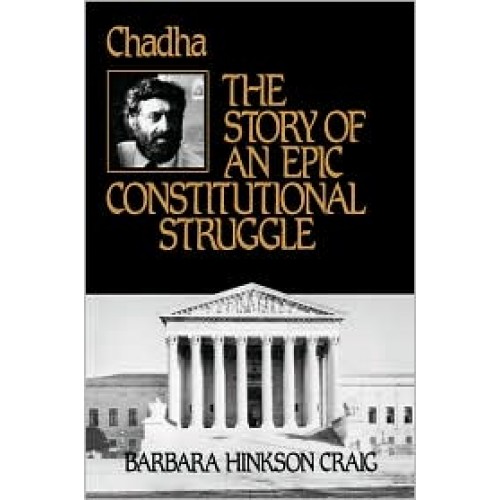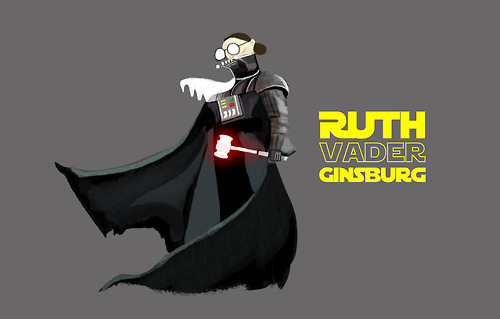I found this great article from the Times in 1985, titled “Faces Behind Famous Cases,” with a focus on Jagdich Chadha, the litigant in the famous legislative veto case, INS v. Chadha:
JAGDISH RAI CHADHA, now a citizen of the United States, lives a quiet life in a San Francisco suburb with his wife and two daughters. Few of his neighbors and co-workers know that because of him, the United States Congress can no longer exercise the legislative veto, a 50-year-old practice used to block special actions taken by the President or Federal agencies. …
Jagdish Rai Chadha, Steven Pico and Amy Rowley are ordinary people thrust into extraordinary circumstances. In law schools across the country and in newspaper accounts, they are commonly referred to by their case names: I.N.S. v. Chadha; Pico v. Island Trees; Rowley v. Hendrick Hudson School District. They did not set out to rewrite history. But as litigants in landmark Su-preme Court cases, they challenged the status quo, thereby changing their own lives and the lives of millions of Americans.
The people behind many Supreme Court decisions are overshadowed by the emotional debate that follows the Court’s sweeping opinions. Mr. Chadha and Mr. Pico, for example, are mentioned on the standardized law school admission test, but many people taking the test cannot identify them. In many instances, the importance of these individuals as individuals began to fade even as their cases were being argued.
The Times offers some more background (beyond the sparse facts in the opinion):
In 1972, Mr. Chadha was working on a master’s degree in political science at Bowling Green University in Ohio when his student visa expired. He was ordered deported but found that his homeland, Kenya, which had won independence from Britain, would not accept him because his parents were British subjects. Immigration officials suspended deportation proceedings under a legal provision authorizing the Attorney General or his designate to take such action, subject to Congress’s power to invalidate it.
The House of Representatives used the legislative veto, under which either house can, by a simple majority, block specific actions that the President or a Federal agency takes to carry out authority that Congress has delegated. The House disapproved the decision and called for the deportation of Mr. Chadha and five other aliens in December 1975.
Chadha also spoke of his time in court:
On many occasions, litigants are present during oral arguments, as were Mr. Pico and Mr. Chadha. But the justices are seldom aware of this and probably could not identify them. The reverse is not always true. ”By the time the case was argued, I felt inextricably tied to the justices,” Mr. Chadha said. ”They didn’t know me, but I followed their lives and their cases rather closely.” Indeed, when Justice Byron R. White became ill, he said, he was ”inclined to send a card.’
Plus they talked with Alan Morrison who argued the case!
All three litigants speak modestly of their role in history. ”They didn’t need Jagdish Chadha for this case, it could have been any of millions of people,” Mr. Chadha said.
But Alan B. Morrison, director of litigation for Public Citizen Litigation Group, a nonprofit litigation center in Washington and the attorney who argued the case before the Supreme Court, suggests otherwise. ”The case could have been over once Mr. Chadha, for example, married his wife, who is an American citizen,” he said. ”But it became a matter of principle for him. He was determined not to let this case get sidetracked.”
And this great quote from Justice Stewart about how individual litigants make no difference in the case.
Former Justice Potter Stewart said the justices ”do not at all” consider individual litigants or take into account the effect the Court’s decisions may have on their lives. Justice Stewart, who retired from the Court in 1981 after 23 years of service, is a Federal appeals court judge and arbitrator.
”We have to strictly look at the circumstances surrounding the cases,” Justice Stewart said during a recent telephone interview from his Washington office. This is true even in death-row cases. The justices understand that a life can depend on their ruling, he said, but that knowledge ”never enters into the decision-making process.”
Here is a photo of Chadha, and the cover of a book written about his case.








